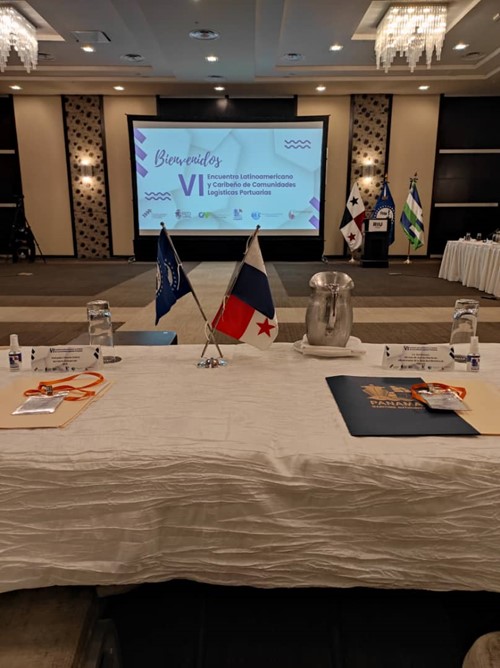
The Minister of Foreign Affairs of Panama, Erika Mouynes, opened this Wednesday the VI Latin American and Caribbean Meeting of Logistic Port Communities, where she ratified the maritime and port capacity of her nation and highlighted her Government’s commitment to sustainability.
“Ports are essential infrastructure assets, because they function as catalysts for economic growth and development. Therefore, increasing port resilience to the effects of pandemic and climate change is an important and strategic economic issue, fundamental to achieving true development,” said Mouynes
She added that for our region to be more competitive, “we must seek to reduce logistics costs, and to do so, we must develop tools that allow us to eliminate non-tariff barriers.”
For his part, the Permanent Secretary of the Latin American and Caribbean Economic System (SELA), Ambassador Clarems Endara, welcomed the participation of regional authorities in the event and extended an invitation to those countries that are not yet members of the Ports Network to join this initiative for regional integration, promotion of best practices and cooperation for trade facilitation and optimization in the region.
The Permanent Secretary of SELA said that this sixth edition of the Regional Meeting of Logistic Port Communities is an opportunity to meet again with the stakeholders of the maritime-port sector, which ratifies the commitment of this organization to the promotion of programmes and policies that foster the digital transformation of ports, promote sustainability and port security, improve city-port relations in the region and the intermodality of the sector.
“The region needs innovative strategies and policies to facilitate and boost trade, strengthen the supply chain and promote the consolidation of innovative port communities,” Endara added.
In addition, the Manager of Physical Infrastructure and Digital Transformation of CAF-development bank of Latin America, Antonio Silveira, highlighted the importance of supporting initiatives for the integration of the port network, as a programme that “has yielded interesting results and is a path for the evolution of the necessary network of ports.”
He maintains that a port network in the region represents “a platform for the exchange of experiences and best practices to leverage the efficiency and management of the logistics communities with their different aspects with a special focus on digitalization, which is an increasingly important challenge to strengthen the regional capacity to compete,” he pointed out.
The Chairman of the Board of the National Port Authority (APN) of Peru, Edgar Patiño, detailed the progress made towards the legal consolidation of the port network for the region. He emphasised the importance of the organisation to facilitate the flow of the ports and urged to work on the consolidation of the network to dynamize the maritime sector, which will be strengthened with great competitive and sustainable advantages.
The Minister of Maritime Affairs and Administrator of the Panama Maritime Authority (AMP), Noriel Araúz, highlighted the importance of discussing the digital transformation, cybersecurity and sustainable development of the port sector. He urged to redouble efforts to advance in the pending and necessary tasks to strengthen the growth of the ports in the region.
The VI Latin American and Caribbean Meeting of Logistic Port Communities started on Wednesday 16 March and will last until Friday 18 March. This regional meeting is being organized by SELA, CAF-development bank of Latin America and the Panama Maritime Authority (AMP). During five working sessions, specialists and regional authorities will debate on the outlook of the port activity in Latin America and the Caribbean in the context of the pandemic; intermodal transport: experience in the region; strategies for sustainable development of ports and their communities; port security and cyber-security; and digital transformation of ports.
